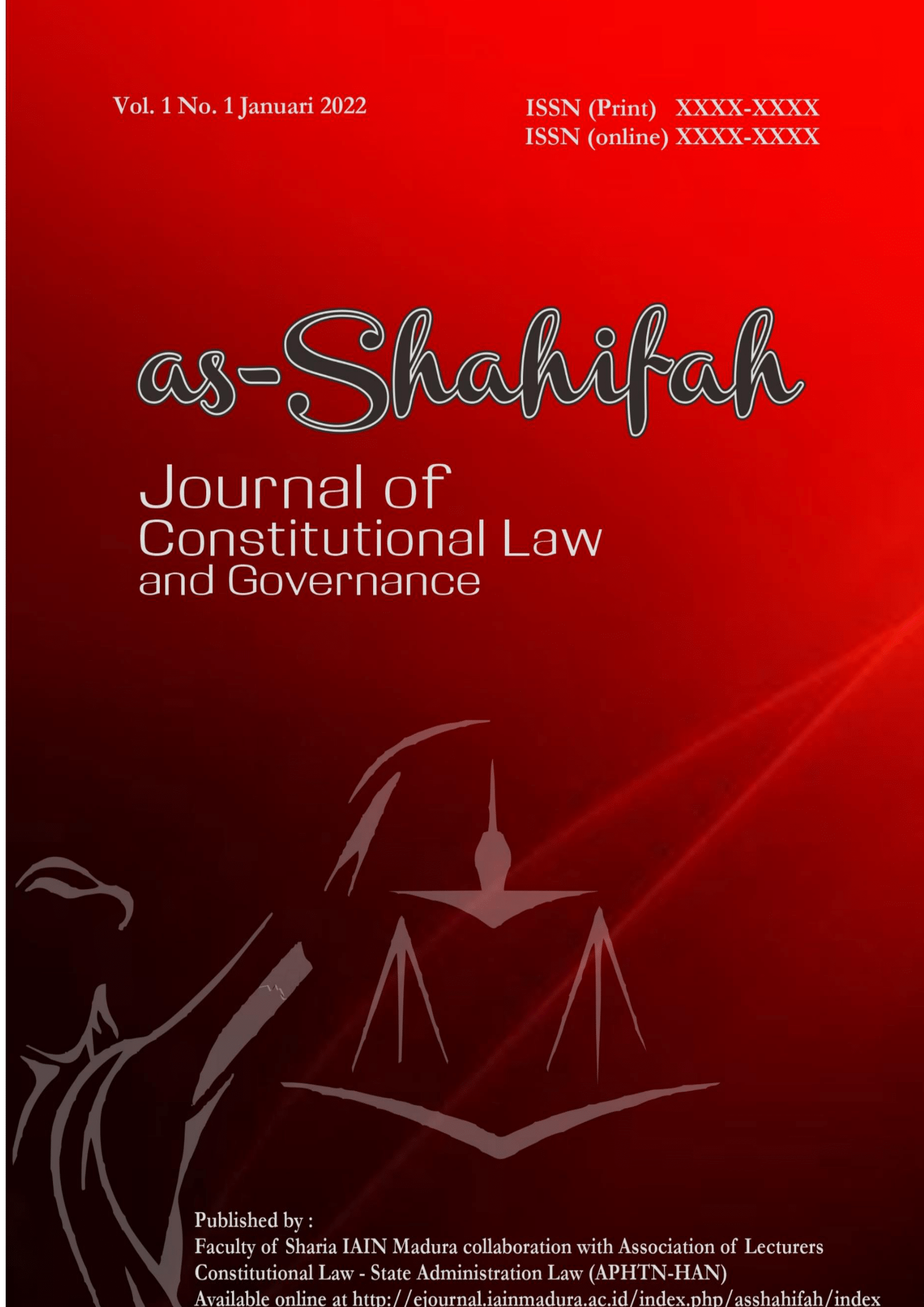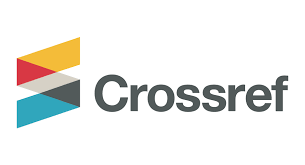Problematika Legislasi dalam Sistem Pemerintahan Presidensial Multipartai
 Abstract views: 473
,
Abstract views: 473
,
 PDF downloads: 592
PDF downloads: 592
Abstract
This research raises the issue of legislation in the multi-party presidential government system in Indonesia after the amendment to the 1945 Constitution. In order to make this research more focused, the researcher proposes two main questions, namely; How exactly are the legislative problems that occur in a multi-party presidential government system? Likewise, how are the efforts to resolve the legislative problems in a multi-party presidential government system?. To answer these two problems, the researcher uses several approaches in this normative research. Among these approaches are the statutory approach, the conceptual approach, the historical approach and the case approach. Based on the results of the discussion in this study, the researcher concludes two main conclusions related to the problematics of legislation in the multi-party presidential government system in Indonesia after the amendments to the 1945 Constitution. namely, the weakening of the president's power in terms of legislation due to the increasing influence of the DPR's power in the legislative process, even though the president has double role. Furthermore, the legislative problem that occurs in the multi-party presidential system of government in post-amendment Indonesia is the waning spirit of upholding the principle of checks and balances in the formation of legislation.
Downloads
References
_______________, Konstitusi dan Konstitusionalisme, Konstitusi Press, Jakarta, 2006.
_______________, Pokok-Pokok Hukum Tata Negara Indonesia Pasca Reformasi, BIP-Gramedia, Jakarta, 2007.
_______________, Prihal Undang-Undang, Rajawali Press, Jakarta, 2010.
Azhari, Negara Hukum Indonesia; Analisis Yuridis Normatif Tentang Unsur-Unsurnya, UI Press, Jakarta, 1995.
Budiardjo, Mariam, Dasar-Dasar Ilmu Politik, PT Gramedia Pustaka Utama, Jakarta, 2009.
Bentham, Jeremy, 1996, An Introduction to the Principles of Morals and Legislation, J.H. Burns and H.L.A. Hart (ed.). Clarendon Press, Oxford; 1996.
Chaidir, Ellydar, Hubungan Tata Kerja Presiden dan wakil Presiden, Perspektif Konstitusi, UII Press, Yogyakarta, 2001.
Dimyati, Khudzaifah & Kelik Wardiyanto, Metode Penelitian Hukum, Universitas Muhammadiyah Surakarta, Surakarta, 2004.
Farida, Maria, Ilmu Perundang-undangan Dasar-dasar dan Pembentukannya, Kanisius, Yogyakarta, 1998.
F. Istanto, Sugeng, Penelitian Hukum, CV. Ganda, Yogyakarta, 2007.
Gofar, A., Fajrime Asas Legalitas Dalam Rancangan KUHP, Elsam, Jakarta, 2005.
Haedar Nashir, Haedar, Perilaku Politik Elit Muhammadiyah, Tarawang, Yogyakarta, 2009.
Publishing your paper with As-Shahifah : Journal of Constitutional Law and Governance means that the author or authors retain the copyright in the paper. As-Shahifah granted an exclusive non commercial reuse license by the author(s), but the author(s) are able to put the paper onto a website, distribute it to colleagues, give it to students, use it in your thesis etc, so long as the use is not directed at commercial advantage or toward private monetary gain. The author(s) can reuse the figures and tables and other information contained in their paper published by As-Shahifah in future papers or work without having to ask anyone for permission, provided that the figures, tables or other information that is included in the new paper or work properly references the published paper as the source of the figures, tables or other information, and the new paper or work is not direct at private monetary gain or commercial advantage.
As-Shahifah journal provides immediate open access to its content on the principle that making research freely available to the public supports a greater global exchange of knowledge. This journal is licensed under a Creative Commons Attribution-ShareAlike 4.0.This license lets others remix, tweak, and build upon your work non-commercially, and although their new works must also acknowledge & be non-commercial, they don’t have to license their derivative works on the same terms.
As-Shahifah journal Open Access articles are distributed under this Creative Commons Attribution-ShareAlike 4.0 International License (CC BY-SA). Articles can be read and shared for noncommercial purposes under the following conditions:
- BY: Attribution must be given to the original source (Attribution)
- SA: If you remix, transform, or build upon the material, you must distribute your contributions under the same license as the original.









